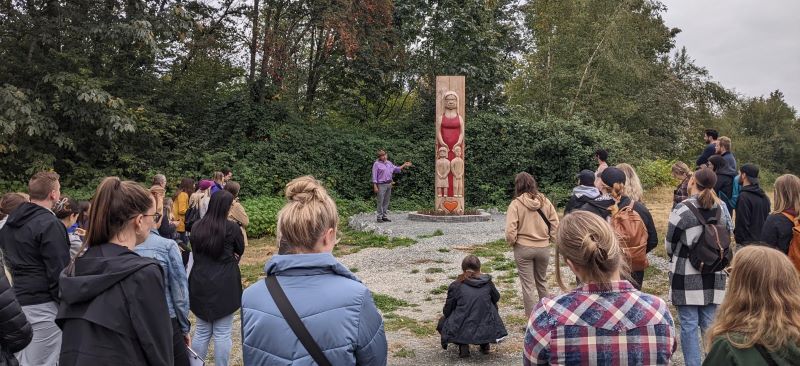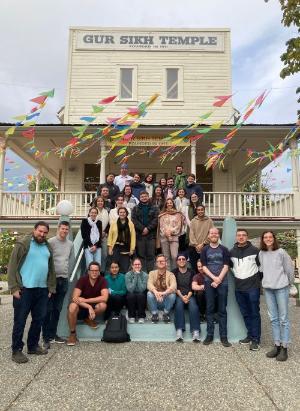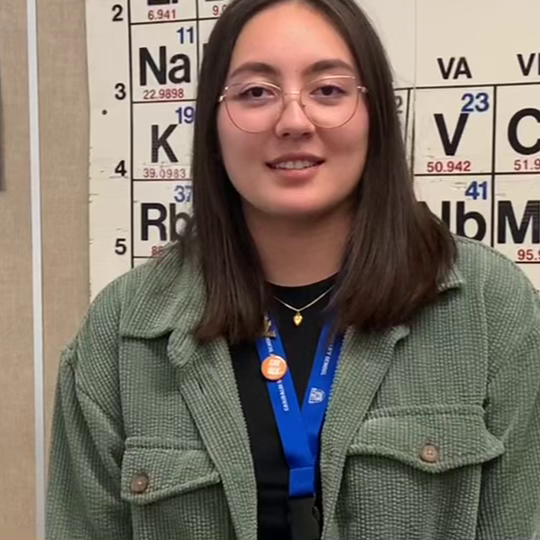School of Education values
 The School of Education is informed by five values.
The School of Education is informed by five values.
Pedagogical sensitivity
The SOE supports a learner centered view of teaching. Educators must understand the importance of the learner-teacher relationship and its ethical underpinning, while honouring and respecting the needs of each learner. Educators must have the knowledge, skills, and confidence to adapt and develop curriculum to meet the specific needs of each learner.
Reflective practice
The SOE believes that educators must engage in reflective practice. Reflective practice is the ability to reflect in a thoughtful and comprehensive way on the significance of different teaching and learning situations and on the educator’s role in creating and maintaining a healthy learning environment for everyone. Educators must demonstrate self- knowledge by openly identifying personal biases and projections. Reflective practice, guided by the principles of self-evaluation and inquiry, is considered the foundation of continuous professional growth.
Critical mindedness
The SOE believes that educators must understand the complexity, subtlety, and difficulty of contemporary educational questions and issues. This understanding is extended to their colleagues – as educators value the experiences of their peers, recognize the diversity that is possible within instructional techniques, and choose to learn all that they can without passing judgment on fellow professionals. In an attempt to solve problems, educators must show a high degree of flexibility in comparing various perspectives, seeking alternative solutions, and engaging in collaboration.
Social justice
The SOE believes that educators must be committed to honoring and nurturing the diverse experiences and identities of marginalized and all people. This commitment requires a critical awareness of one’s own positionality and the ability to see beyond personal worldviews. Educators are called to actively examine and challenge their personal biases, work to dismantle systemic inequities, and advocate for the rights and dignity of both learners and the broader community. Equally important in their role is empowering learners to become advocates for themselves and others, fostering more authentic, ethical, and responsible engagement with the world. The SOE places a high value on the moral and ethical responsibilities of educators, recognizing them as essential to transformative teaching and learning.
Integration of knowledge and practice
The SOE supports the seamless connection between knowledge (academic disciplines), educational theory, and practice (methods for achieving educational ends). Educators must constantly engage in the recursive interplay of knowledge, educational theory, and practice throughout their professional lives.
Commitment: decolonization & Indigenization

The School of Education has made a strong commitment to decolonizing practices, and Indigenizing curriculum and pedagogy. We warmly welcome Indigenous learners into SOE programming and actively seek to incorporate Indigenous Ways of Knowing and perspectives into our curriculum.
Terrible things have been done in the name of education in Canada – not the least of which were the attempts by the Canadian government to assimilate thousands of Indigenous children into White Settler society through Indian Residential Schools (IRS). The primary goal of these schools was to “kill the Indian in the child”. Senator Murray Sinclair (the Chief Commissioner for the Truth and Reconciliation Report), when speaking about the harm perpetrated in the name of education in these schools, stated, “Education is what got us into this mess; and education is what will get us out.”
Armed with the new understandings we have come to because of the stories of truth shared by IRS Survivors through the Truth and Reconciliation Commission Report, SOE programming at UFV seeks to mitigate some of this damage and work to create a society where Indigenous children and adolescents are valued for who they are.
Social justice & anti-racism

Social Justice, as one of the five School Values, is a tenet that all faculty, staff, students, and teacher candidates are expected to uphold. This value will be demonstrated through the ways in which we work together, and the ways in which we work with children and adolescents. We will create inclusive learning environments that are ethical and safe by using individualized and equitable approaches that engage learners and include their voices, and by exposing gaps in schooling and curriculum that serve to minimize or marginalize children, students, and teachers.
However, social justice also requires us to become knowledgeable about racism and discrimination, thus spurring us to challenge status quo, power, and privilege within education and schooling. We all hold prejudice and discriminate against others – this is built into the way that we are hardwired as human beings. Our job as educators is to acknowledge and push against this within all aspects of our daily lives – to become antiracist educators. This means interrogating ourselves, our experiences, and our practices; and wrestling with the discomfort that will emerge. It also means engaging in critical discourse, acknowledging and examining our own biases, and having courageous conversations about injustice and our own experiences with it.

 The
The 

